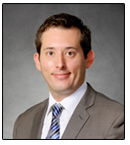Spring and summer flowers are giving way to fall foliage, so why you are still sneezing?
Autumn's nasal allergy triggers are different than summer's, but can still cause you to experience just as many symptoms as you do during the spring and summer. Ragweed is the most common allergen in the fall, but all weeds will pollinate in the fall and can be a problem.
Watch our previously recorded webinar now to learn more about fall nasal allergy triggers and treatments.
Led by Nathan A. Deckard, MD, a board-certified ENT allergist at Cooper, this presentation outlines fall allergy triggers and provides tips for managing your nasal allergies. Topics include:
- Signs and Symptoms of Nasal Allergies
- Common Allergy Triggers
- Prevention
- Allergy Testing
- Nasal Allergy Treatment Options
About the presenter:
 Nathan A. Deckard, MD, is the Director of Rhinology, ENT Allergy and Skull-Base Surgery at Cooper University Health Care. Dr. Deckard received his medical degree from the University of Miami School of Medicine in Miami, FL. He completed an otolaryngology – head and neck surgery residency at Wayne State University in Detroit, MI. Dr. Deckard further specialized in rhinology, allergy, and skull-base surgery at the University of Texas Southwestern in Dallas, TX. Dr. Deckard is board certified in otolaryngology – head and neck surgery and is a member of the American Academy of Otolaryngology – Head and Neck Surgery, the American Rhinologic Society and the American Academy of Otolaryngic Allergy.
Nathan A. Deckard, MD, is the Director of Rhinology, ENT Allergy and Skull-Base Surgery at Cooper University Health Care. Dr. Deckard received his medical degree from the University of Miami School of Medicine in Miami, FL. He completed an otolaryngology – head and neck surgery residency at Wayne State University in Detroit, MI. Dr. Deckard further specialized in rhinology, allergy, and skull-base surgery at the University of Texas Southwestern in Dallas, TX. Dr. Deckard is board certified in otolaryngology – head and neck surgery and is a member of the American Academy of Otolaryngology – Head and Neck Surgery, the American Rhinologic Society and the American Academy of Otolaryngic Allergy.
Dr. Deckard specializes in nasal and sinus disorders, including rhinitis, sinusitis, congestion and nasal polyps, using both medical and surgical therapies. Dr. Deckard also diagnoses and treats inhalant allergies (e.g., pollen, grass, trees, weeds, mold and animal dander) using both traditional subcutaneous immunotherapy (SCIT or "allergy shots") and new sublingual drop immunotherapy (SLIT).
